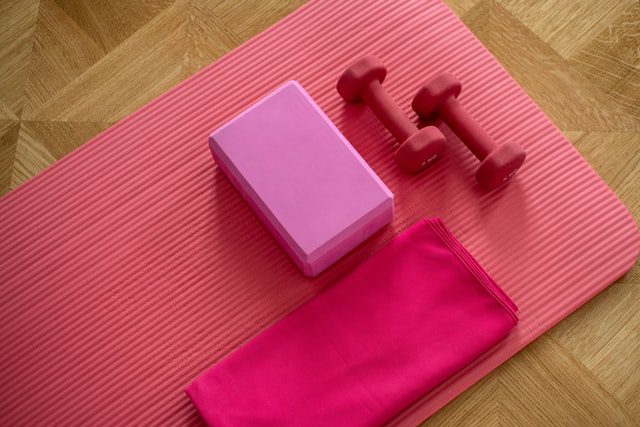
Planning Transition Oriented Workouts for Trans Women
For many trans women, fitness and physical health are extremely important parts of their transition. Many might have distinctly male characteristics that they want to change during their transition. They might want to work on developing a more feminine figure. Some still might want to lose weight in order to improve their overall health.
The most important thing to remember when you start taking hormones is that your body will automatically undergo specific changes. For example, lower levels of testosterone combined with higher levels of estrogen and progesterone often result in weight gain if calory intake is not bought down. Furthermore, fat redistribution is a natural occurrence after starting HRT. You will also not be able to retain muscles that might be well developed already.
We hope to provide some direction through this article, whatever your goal might be.

MTF Workout Goals
Before starting a workout, it is essential that you are clear on your goal. Do you want to lose fat? Do you want to build muscle? Do you want to change your body shape? Are you worried about blood clots and wish to avoid such complications? Do you just want to get healthy and help to stabilize hormones?
Once you have identified your ultimate goal, then you can start working on a workout plan and decide whether you want to make use of a trainer or manage your own training.
It might be a good idea to speak to a healthcare professional about workout plans once you have started transition processes. A doctor would also be able to give some advice on diet and eating plans to suit your new body.

Losing Weight/Redistributing Body Weight
If your goal is to lose, or redistribute, body fat, then cardio or interval training can be most effective. If you are used to eating a lot of calories, it might not be easy adjusting to new hormone levels that require fewer calories to maintain body weight. In these cases, an exercise routine can be beneficial.
Building Muscle Mass and Weight Lifting
Transgender women are often wary about gaining size when it comes to weight training. Remember that lower testosterone levels combined with higher estrogen levels mean that it will be more challenging to build and retain muscle in the first place. You will also be able to lose muscle mass through a healthy diet if you really want to.
Weight training is an excellent way to lose body fat while building functional strength and improving bone density, which is vital for a trans woman.
If you are really worried about building too much muscle, then there are other workouts you could do to lower body weight, and instead of building muscle, you can focus on strength training instead. This is much more functional.
Aerobic Exercise for Fitness
If you are really only looking for fitness and you are not that worried about proper form or muscle growth, then aerobics is a great option. It also improves circulation and heart health and will combat the higher risk of stroke.
If you are used to taking in more calories and want to work on weight more than anything else, then this is the option for you. Unfortunately, many transgender individuals are susceptible to gender dysphoria, and a loss of control over body weight can make the transition experience less positive.
Workout Routine to Support Breast Development
For a transgender woman, a significant source of gender dysphoria can be breast development. There are some workouts for upper bodies that can help with breast development. Not everyone will feel the need to adopt a specific exercise routine for specific muscles, but if you do want to help your body out with fat distribution and developing breasts, then there are actually exercises that can help transgender people with this.

Choosing a Personal Trainer
Most people who are serious about exercise routines often feel the need to hire a trainer at the beginning of their journey. Trainers can help you come up with exercises to suit your individual needs and can help to make sure that you maintain good form in your execution of these exercises.
While a trainer is not technically a healthcare professional, many of them are well versed in body dysphoria (not only in transgender people). Therefore, they can provide support and help you to be more realistic about your current situation and your goals.
Some might already be familiar with gender-affirming routines and can give advice on diet and exercise plans to suit your needs.

Special Consideration for Trans People
While diet and exercise are essential for anyone, trans people have some special considerations to be aware of when it comes to these things.
The main concern would be surgery. Specifically changes that are made during surgery and recovery from surgery. Some gender-affirming surgeries have movement restrictions and can have exercise restrictions that can last beyond ordinary recovery times. This is an important thing to discuss with your doctor if you are going to have or have had surgery. Rest is essential for recovery from surgery, and it is so important not to overdo it. You might end up causing real damage to yourself if you do not rest enough after surgery.
With gender affirmation, you are also likely to be taking hormones that will have an impact on your body. Changes will develop, fat will redistribute, and you will need to have some understanding of what you might look like after a year or two on hormones. While your upper body changes might be most noticeable, there are also changes to the lower bodies of transgender women. As a trans woman, it is essential that you also know how such changes will develop and how bottom surgery will impact the development of your body.

Frequently Asked Questions
How long do I need to restrict movement after MTF top surgery?
Movement restrictions average around 6 to 8 weeks, but there might be restrictions on strenuous exercise that will carry on for longer. It is best to discuss this with your surgeon.
Can I do leg lifts and step-ups after an orchiectomy?
Yes, but there will be a period of movement restriction that you need to adhere to.
Are fruit juices healthy for transgender women?
Fruit juice is high in sugar and calories, so it might not be the best option, but they are not necessarily unhealthy unless you have an increased risk of stroke or diabetes.



